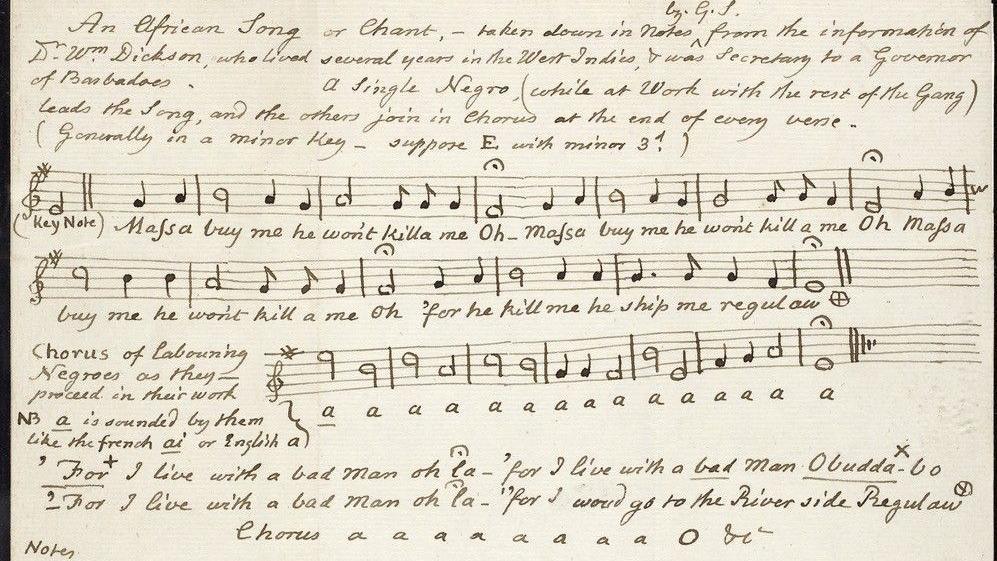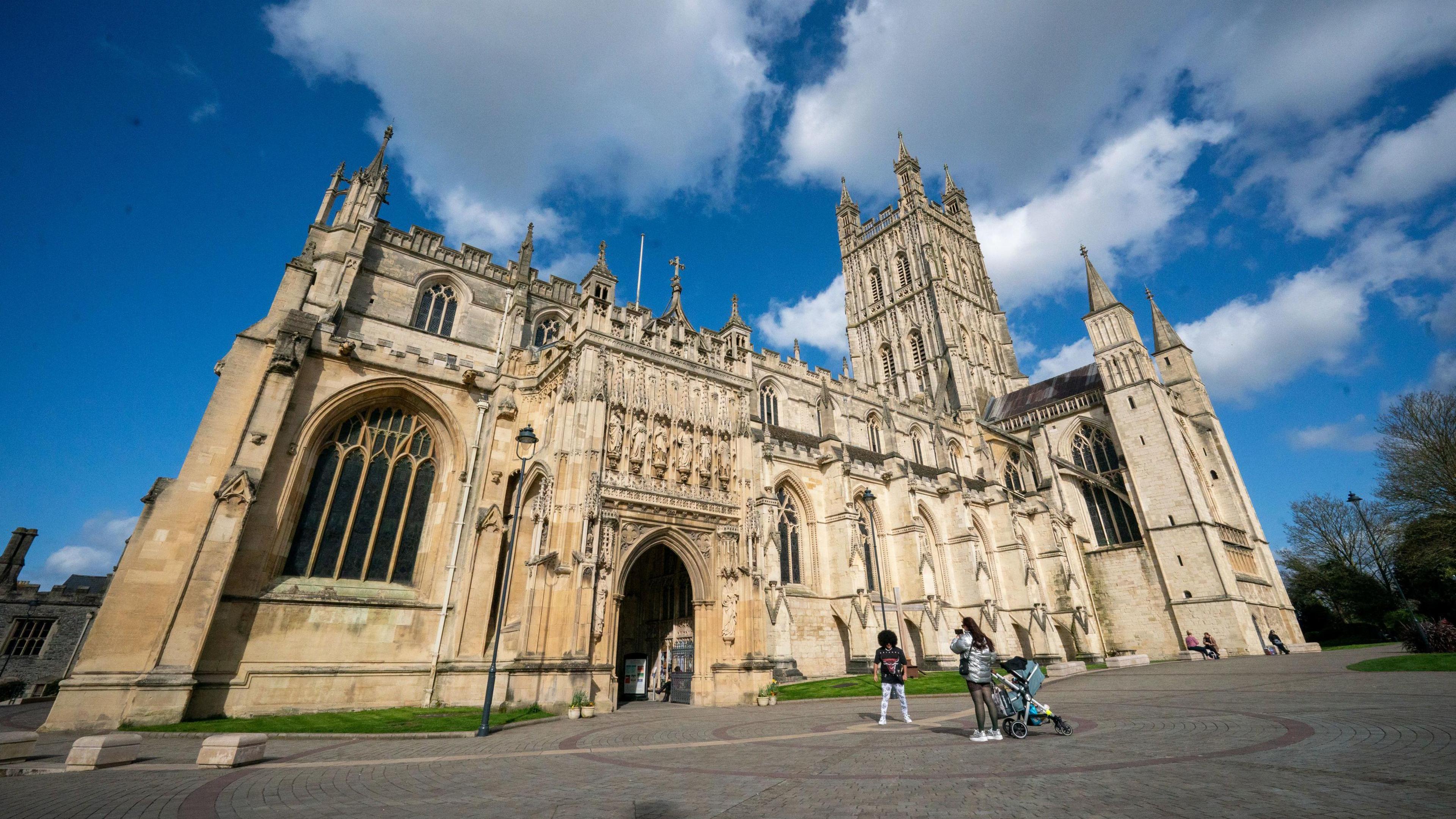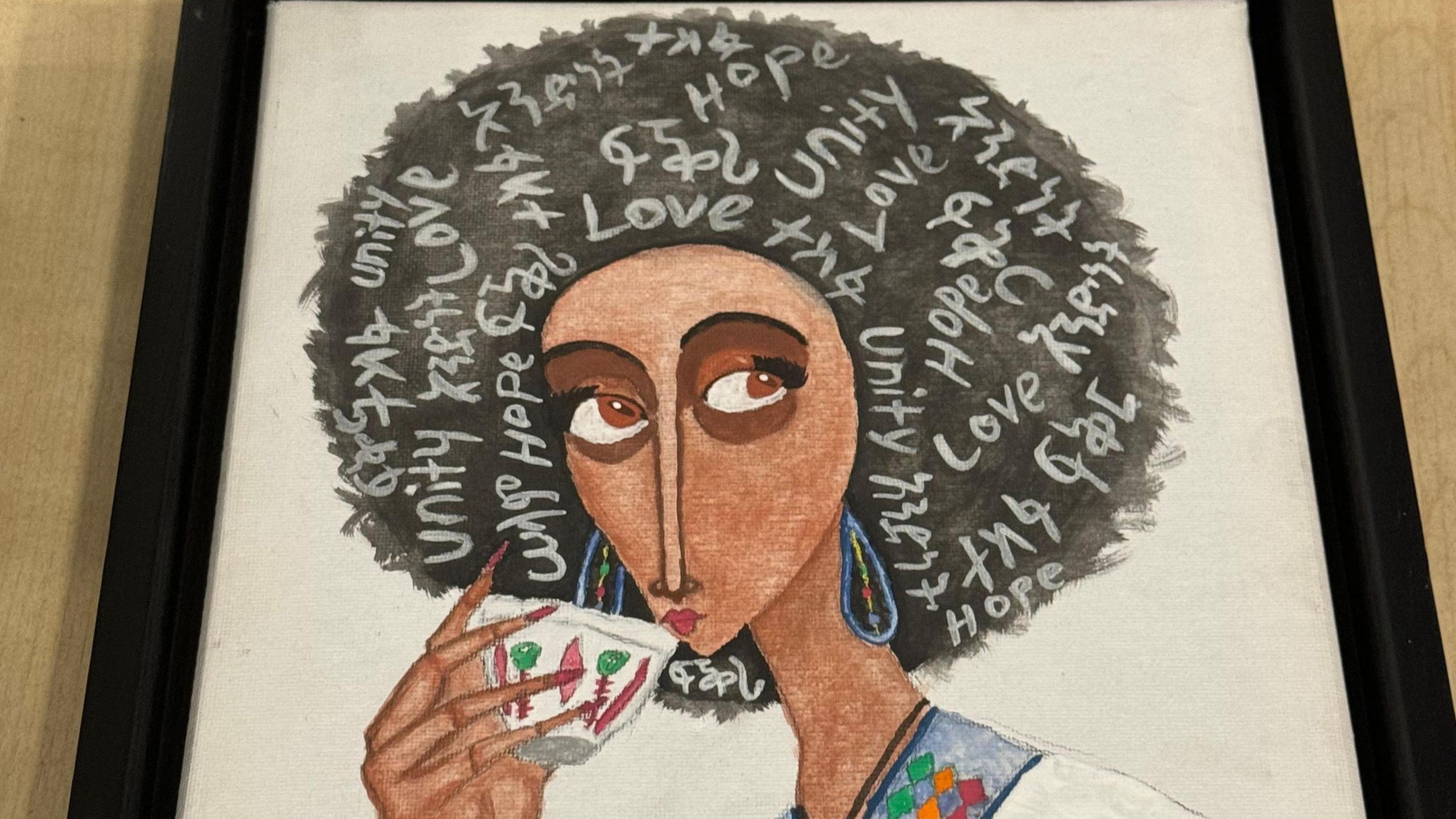Rare slave song manuscript set for exhibition

The cathedral said the manuscript is a UNESCO World Heritage document
- Published
A rare manuscript of a historical 18th Century slave song is set to go on display in Gloucester Cathedral.
The cathedral said it is the world’s oldest surviving music manuscript from the voices of enslaved people on the sugar plantations of Barbados.
It will be part of a new exhibition that will also showcase international artists and local quilt makers, and will run from 6 - 30 September.
Canon Rebecca Lloyd, Gloucester Cathedral’s director of participation, said the works "celebrate the rich tapestry of Gloucester's diverse people and stories".
The manuscript is usually housed in the Gloucester Archives and is a UNESCO World Heritage document.
It has inspired new art from Gloucester-based artist Rider Shafique, of Bajan descent, and British-Jamaican photographer Vanley Burke, which will go on display in the Cathedral’s Lady Chapel.
Their art will also delve into the impact of the transatlantic slave trade, from their perspectives as descendants of Caribbean enslaved people.

The manuscript will form part of an exhibition which will open at the cathedral in September
Local textiles artist and curator of the exhibition, Jo Teague said a series of newly commissioned quilts will also feature.
“Through these quilts, we will tell the intricate stories of our community, while honouring Gloucester's rich history," she said.
"Long recognised as a female art form embodying love, thriftiness, and personal narratives, quilting holds a special place in our cultural heritage."
The exhibition aims to explore themes of migration, displacement, neurodiversity and cultural histories.
Canon Lloyd said: “This exhibition embodies our commitment to being a place where everyone is welcome, where all voices are heard, and where art can inspire positive change within our community.”
Get in touch
Tell us which stories we should cover in Gloucestershire
Follow BBC Gloucestershire on Facebook, external, X, external and Instagram, external. Send your story ideas to us on email or via WhatsApp on 0800 313 4630.
Related topics
- Published27 July 2024

- Published26 July 2024

- Published24 July 2024
